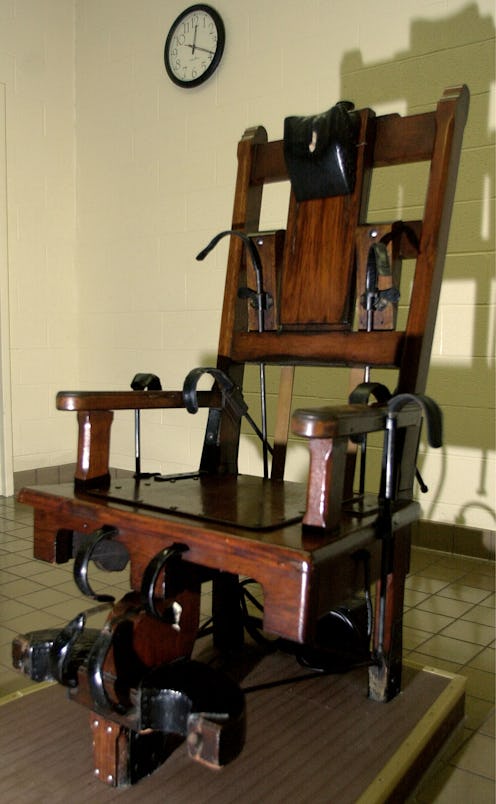News
Tennessee Brings Back The Electric Chair
Amid the heated debate over the "humane" aspect of the death penalty, one state has posed its own solution to rising concerns over lethal injection drugs: Tennessee is bringing back the electric chair. Republican Gov. Bill Haslam signed a bill Thursday allowing the state to use the alternative form of execution if they can't get access to the necessary drugs, since prisons have faced shortages as a result of a European-led pharmaceutical boycott. The decision makes Tennessee the first state to make use of the electric chair mandatory, and is sure to raise eyebrows.
In April, state lawmakers voted to electrocute death row inmates if lethal injection is found to be unconstitutional or if the drugs are unavailable. The support was clear, with the Senate voting 23-3 and the House 68-13 in favor of the bill. Previously, Tennessee inmates who committed crimes before 1999 had a choice to opt for either the chair or injection.
More than a dozen states also have approved legislation that allow for death by other methods such as gas chambers and hanging. In 2013, Robert Gleason, a convicted murderer in Virginia, chose to die by electric chair. The last American killed by a firing squad, Ronnie Lee Gardner, was shot in Utah in 2010. The key difference in Tennessee, however, is the fact that inmates won't be able to pick their procedure.
One supporter of the electric chair bill, Republican state Sen. Ken Yager, said he introduced the legislation as a result of "a real concern that we could find ourselves in a position that if the chemicals were unavailable to us that we would not be able to carry out the sentence," according to the AP.
The death penalty has returned to the country's spotlight following the execution of Oklahoma murderer Clayton Lockett that went terribly wrong. Lockett took more than half an hour to die following a three-drug cocktail lethal injection. The incident raised many questions over the safety of the drugs involved, prompting President Obama to launch a Justice Department review of nationwide executions.
Most recently, an appeals court stayed the execution of Russell Bucklew in Missouri hours before he was to be put to death, saying he would have likely suffered a "tortuous death” due to a rare birth defect.
Tennessee's recent decision on the death penalty continues to highlight the issue of a "humane" execution, but more importantly raises the question of whether inmates should even have a choice in their death. Some experts say the governor's signature gives way to cruel and unusual punishment, also an issue of contention in death by lethal injection.
Richard Dieter, president of the Death Penalty Information Center, told CNN that those condemned in Tennessee would have an automatic Eighth Amendment challenge. "The electric chair is clearly a brutal alternative," Deiter said.
